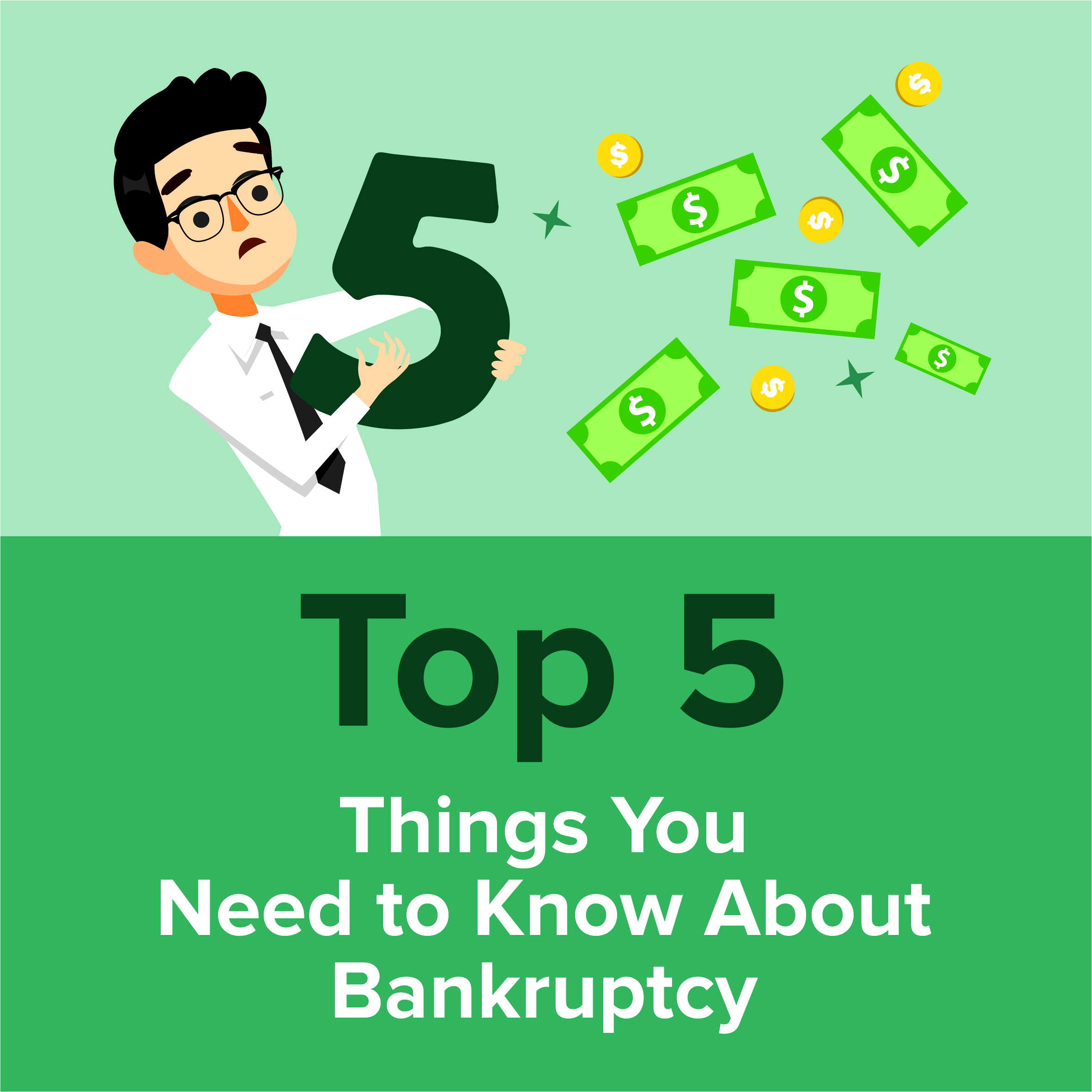
Bankruptcy is an unfortunate event nobody wants to fall into. However, many circumstances can lead to this situation. People who are under significant amounts of debt and there is no way it could be paid within the next 3 years have no other option than to file for bankruptcy.
It will ruin the credit score but when you have been behind on payments, your credit is already poor. In such circumstances, if you hire a trustee to file for bankruptcy, you have very little to lose.
However, learning about bankruptcy is essential. The right knowledge may be very helpful if you ever find yourself in this unwanted situation. In the following article, we discuss 5 things that must be understood about bankruptcy.
#1. It is Not the End of the World
Many people consider bankruptcy a very depressive event. While the consequences that have forced you towards it may be depressive, it could be taken as a new beginning. Filing for bankruptcy allows you a new financial start. It does not clear all your debts but still, a significant amount is removed. Although, debts like child support, court-imposed fines, alimony, restitution orders, and more will not be dissolved
On the other hand, bankruptcy does not rob you of everything you own. In Canada, many of your personal belongings are not eligible for being seized.
#2. You Get to Keep Your Employment
Bankruptcy does not affect your job in most cases. This means that you will still have a steady source of income despite being in an unfortunate event. This also helps with the monthly contributions you have to make to cover the administrative costs of the process.
#3. You will Have Certain Responsibilities
When you file for a bankruptcy, it does not only give you a new financial start but prepares you to deal with future financial situations as well. For this purpose, you will be obligated to certain responsibilities. These include the attendance of two financial counseling sessions, reporting your income and expenses to the Trustee, and paying monthly surplus income.
#4. Your Rights to Bankruptcy
An individual has the definite right to bankruptcy but it is important to understand why you file it, what you get in return, and what is expected in the future. With many of the debts cleared, it will become easier to start fresh. However, a bankruptcy should teach you to be extra careful and organized in the future. If you do not receive any knowledge out of this difficult situation, you will only fall victim to poorer financial situations in the future.
#5. Understanding Types of Individual Bankruptcies
Personal bankruptcies include the chapter 7 and chapter 13. In chapter 13, you are helped with the reorganization of your finances and payment of most debts. In chapter 7, the judge will liquidate your assets so your debt can be cleared. Practically, your car, house, and other personal belongings are exempt from these assets. However, it is possible that no assets are available to liquidate after these personal holdings have been eliminated.
Alternatives to Bankruptcy
If you learn properly about bankruptcy, it is possible that it is not the only option available for your particular financial situation. It may seem like a good option when you are incredibly stressed with the debts piling up.
However, reaching out to a financial advisor may help to find a better solution. You may be guided on how to manage your existing debts without filing bankruptcy.
What Comes After Bankruptcy?
After you have been through a bankruptcy, it is time to rebuild your credit. A suggested method to do so is to acquire a secured credit card. You give your local bank a certain amount of money to hold. In return, they define the credit limit equal to the money you gave. The important thing is to ensure if the bank will report your card usage to the major credit bureaus. Find a bank that conducts such reporting so your credit can get back on track.
Ask about how soon you can increase the credit card limit. You will have to deposit more money with the bank so your limit could be increased. The improvement of your credit depends on this. The higher is your credit card limit, the lower will be your balance, and the quicker your credit score will be improved.
You can also request a retail or gas credit card. If you use it the right way, you can improve your credit gradually.
Learning about bankruptcy will prepare you for the future, which is unpredictable no matter how good your credit seems right now. If you live in Canada, ask about your bankruptcy right and options today.




